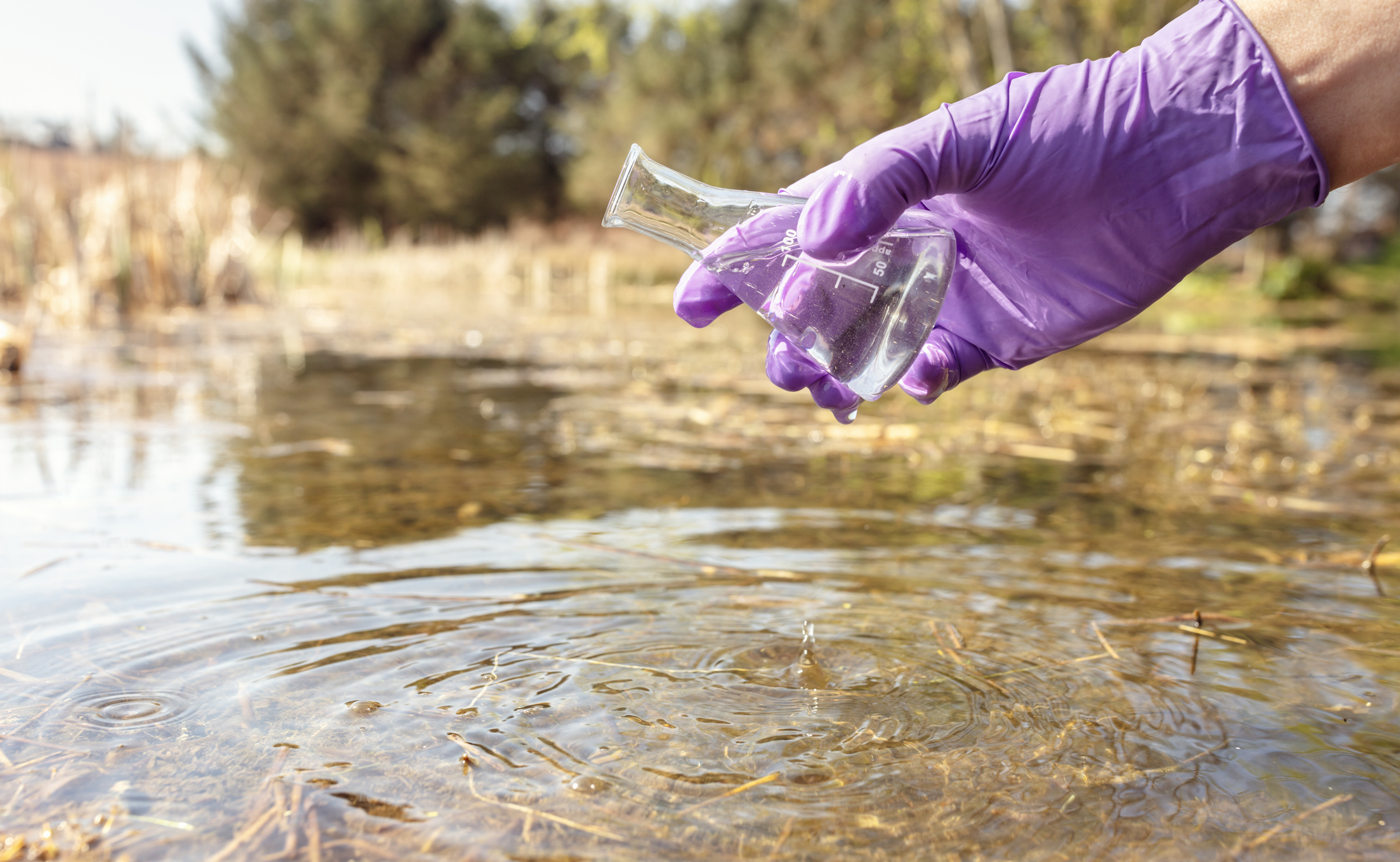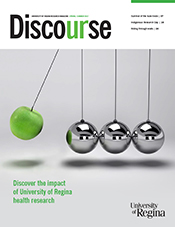Geobiologist Dr. Leslie Robbins awarded $382,744 from CFI and Saskatchewan Innovation to create the Environmental Geochemistry and Interfaces (EGI) Lab

University of Regina researchers have been awarded more than $1.35 million in federal funding for work focused on the environment, agriculture, and education – work that will influence and benefit society.
Geobiologist Dr. Leslie Robbins was awarded $382,744 in funding from the Canada Foundation for Innovation (CFI) John R. Evans Leaders Fund (JELF) and Innovation Saskatchewan to help him to create the Environmental Geochemistry and Interfaces (EGI) Lab.
Robbins, an assistant professor in the geology department, says that given the clear connection between surface environments and the biosphere, sedimentary and water geochemistry present a clear place where different approaches to resource extraction and environmental stewardship meet.
“The EGI Lab will help me and my team explore new ways to develop critical mineral resources, measure the environmental and human impacts of climate change, and examine how the Earth's surface and the biosphere have evolved together over time,” says Robbins.
He says researchers within the EGI Lab will accomplish these goals through field work and lab analyses.
“Infrastructure supported by this CFI funding is critical to research success and will aid in providing a better understanding of the availability of metals, like lithium, in modern environments and how the availability of other nutrient-like trace metals have varied over the geological past,” says Robbins.
Robbins explains that this is important because at low levels trace metals like zinc, nickel, and copper are necessary for biology, which makes them micronutrients.

Changes in the availability of these metals over geological time have been linked to major changes in the biosphere. By looking at changes in their availability over geological time we will be able to tell how they may have contributed to major evolutionary changes, helping to piece together the puzzle of our biosphere,” says Robbins.
JELF is a critical strategic investment tool designed to help institutions attract and retain the very best of today’s and tomorrow’s researchers. The fund’s name pays tribute to the outstanding contributions of John R. Evans, the first Chair of the CFI’s Board of Directors.
Also announced today were several Social Sciences and Humanities Research Council (SSHRC) grants. The following University of Regina researchers received SSHRC funding:
Banting Postdoctoral Fellowship
- Dr. Melanie Unrau is a postdoctoral student. She was awarded $140,000 for her research project, Poetry and Poetics of Energy Transition. Unrau's application was ranked number one out of the 158 applications reviewed by the SSHRC Selection Committee.
SSRHC Partnership Development Grants
- Dr. Amber Fletcher is a professor in the Sociology and Social Studies department. She received $193,366 for her project entitled, Community-campus responses to crisis: Opportunities for community engagement and networked learning for climate change resilience
SSHRC Insight Grants
- Dr. Jim Farney is the director and an associate professor at the Johnson Shoyama Graduate School of Pulic Policy. He was awarded a $369,885 Insight Grant for his project entitled, Assessing the Financial, Governance, and Parental Feedback Effects of School Choice in Canada.
- Dr. Andre Magnan is a professor in the sociology and social studies department. His $264,715 grant is for his project Digitalization, financialization, and consolidation in the Canadian agri-food sector.

















